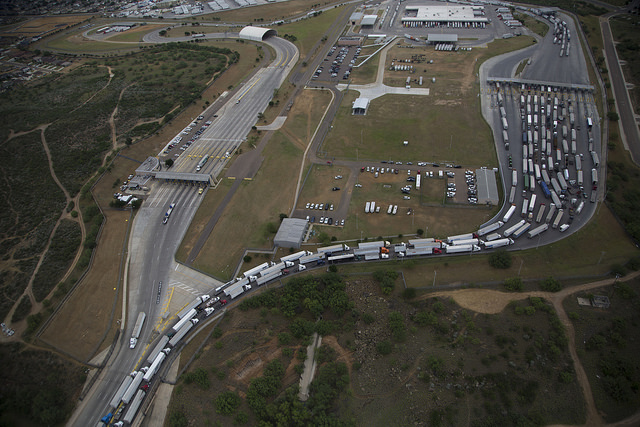Peter McMaster
Economists, businesspeople, and diplomats gathered in Granada Theater on Tuesday to discuss the findings of the UCSB Economic Forecast Project in global, national, and local economic developments.
The three-and-a-half hour conference consisted of talks that five individuals gave: Peter Rupert, director of the EFP; Roberto Rodriguez Hernandez, a career diplomat from the Mexican Ministry of Foreign Affairs and the Mexican Consul for the Tri-County Area; Amity Shlaes, prominent writer and political commentator; Megan McArdle, columnist for The Washington Post with a history of political and economic engagement; and Jorge Castaneda, former foreign minister of Mexico.
The day began with a speech by Chancellor Henry Yang, who lauded the EFP and gave thanks to the event’s sponsors and facilitators.
Rupert took the stage and addressed “the good, the bad, and the ugly” of the economic forecast. Gross Domestic Product (GDP) is on the rise while unemployment is low, and he claimed that this was good. Rupert said the bad is that Santa Barbara is not keeping pace with these national trends, and it’s not keeping pace with neighboring counties of San Luis Obispo and Ventura.
“The economy is growing forward,” Rupert said. “We’re trudging slowly.”
Despite concerns about the economic impact of the Thomas Fire and Montecito mudslides, Rupert said that Santa Barbara businesses are rebounding from natural disaster. Rupert also called for a shift in the retail sector towards arts and entertainment as a way of coping with industry changes initiated by online retail outlets, such as Amazon.
The ugly, according to Rupert, is that America is on the brink of a trade war with former allies due to recent protectionist trade policies and unreliability within the White House.
Trade has increased immensely in recent years and has risen from about 12 percent of United States GDP in 1980 to nearly 30 percent in 2017. Trade now accounts for nearly a third of all GDP in the U.S. Tariffs. Tariffs, or duties imposed on imported goods, have increased under the Trump administration.
Trade is beneficial for everyone and not just underdeveloped countries with lower production possibilities, according to Rupert. These tariffs are a net negative for the United States and the world because they hinder trade.
Other speakers also lectured about trade problems between the U.S. and nearby nations. Rodriguez made a case for the benefits of NAFTA and said that we should strive for amiable relations with Mexico. He also spoke about the impending shift in job training for Mexican workers due to technological changes.
Shlaes gave a historical narrative surrounding times of trust and distrust between the American government and the people. She weaved a narrative to understand the current economic climate as one characterized by distrust.
Shlaes described how trust is built up and eroded over time, and foreign countries have repeatedly witnessed Trump’s inconsistency when it comes to trade deals. One example is his recent switch in stance on U.S. involvement with the Trans-Pacific Partnership.
McArdle presented a narrative of the suppressed voice of the Republican “flyover states” as the catalyst for the recent political upheaval. McArdle spoke of how social media has provided a platform for political figures to bypass the traditional gatekeepers of television and news media. Platforms like Twitter have allowed the president a deeper connection with marginalized voices.
Castaneda touched on Trump’s intentions to renegotiate NAFTA and stated that negotiations should include more than just trade. The Mexican government is without clout, he said, when it comes to just trade. However, it has a strong hand when it comes to matters of national security.
According to Castaneda, the long-standing friendship between U.S. and Mexico has the benefit of increased national security at the U.S. southern border. This relationship acts as a firewall for drug traffickers and terrorists. If Mexico leaves negotiations with a shabby deal, then the U.S. can expect to see retaliation in the form of decreased national security from the southern border.











